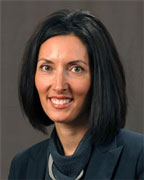The Anchorage School District and the Anchorage Education Association began bargaining today on a new contract for district teachers at the Anchorage Education Center.

Jeannie Mackie is President of the Anchorage School Board. She says she can’t discuss details of the negotiations. But she says the district is lobbying for more funding from the legislature.
“Our school board has been in contact with legislators. We will probably be sending a couple of our school board members down later this month. And we just work to stay in constant contact with them and help provide information and what the amount of money in the education formula really means to our district at this time,” Mackie said.
The teacher’s union negotiations come amid budget cuts. The district is trying to trim around $25 million by eliminating more than 200 educators that are not involved in direct classroom instruction, like guidance counselors, graduation coaches and others. Andy Holleman, the President of AEA, says that makes him unhappy, but he understands that the district is in a pinch.

“They’re dependent on the revenues from the state. The state’s making a choice to hold education funding flat. The state’s not out of money. Money’s always short, but we still see the revenue situation from the state as being something that the governor and the legislature are deciding rather than an actual fact of life,” Holleman said.
Holleman says the average classroom teacher in the district makes a salary of around $67,000 a year. The current three-year ASD agreement with the teacher’s union expires June 30. Contracts can be from 1-3 years. Pay increases, benefits and leave are among the items being negotiated.
AEA represents about 3,500 workers. Most of them are teachers, but they also represent librarians, counselors, school nurses and staff in the district.
Listen to the full story
Daysha Eaton is a contributor with the Alaska Public Radio Network.
Daysha Eaton holds a B.A. from Evergreen State College, and a M.A. from the University of Southern California. Daysha got her start in radio at Seattle public radio stations, KPLU and KUOW. Before coming to KBBI, she was the News Director at KYUK in Bethel. She has also worked as the Southcentral Reporter for KSKA in Anchorage.
Daysha's work has appeared on NPR's "Morning Edition" and "All Things Considered", PRI's "The World" and "National Native News". She's happy to take assignments, and to get news tips, which are best sent via email.
Daysha became a journalist because she believes in the power of storytelling. Stories connect us and they help us make sense of our world. They shed light on injustice and they comfort us in troubled times. She got into public broadcasting because it seems to fulfill the intention of the 4th Estate and to most effectively apply the freedom of the press granted to us through the Constitution. She feels that public radio has a special way of moving people emotionally through sound, taking them to remote places, introducing them to people they would not otherwise meet and compelling them to think about issues they might ordinarily overlook.




